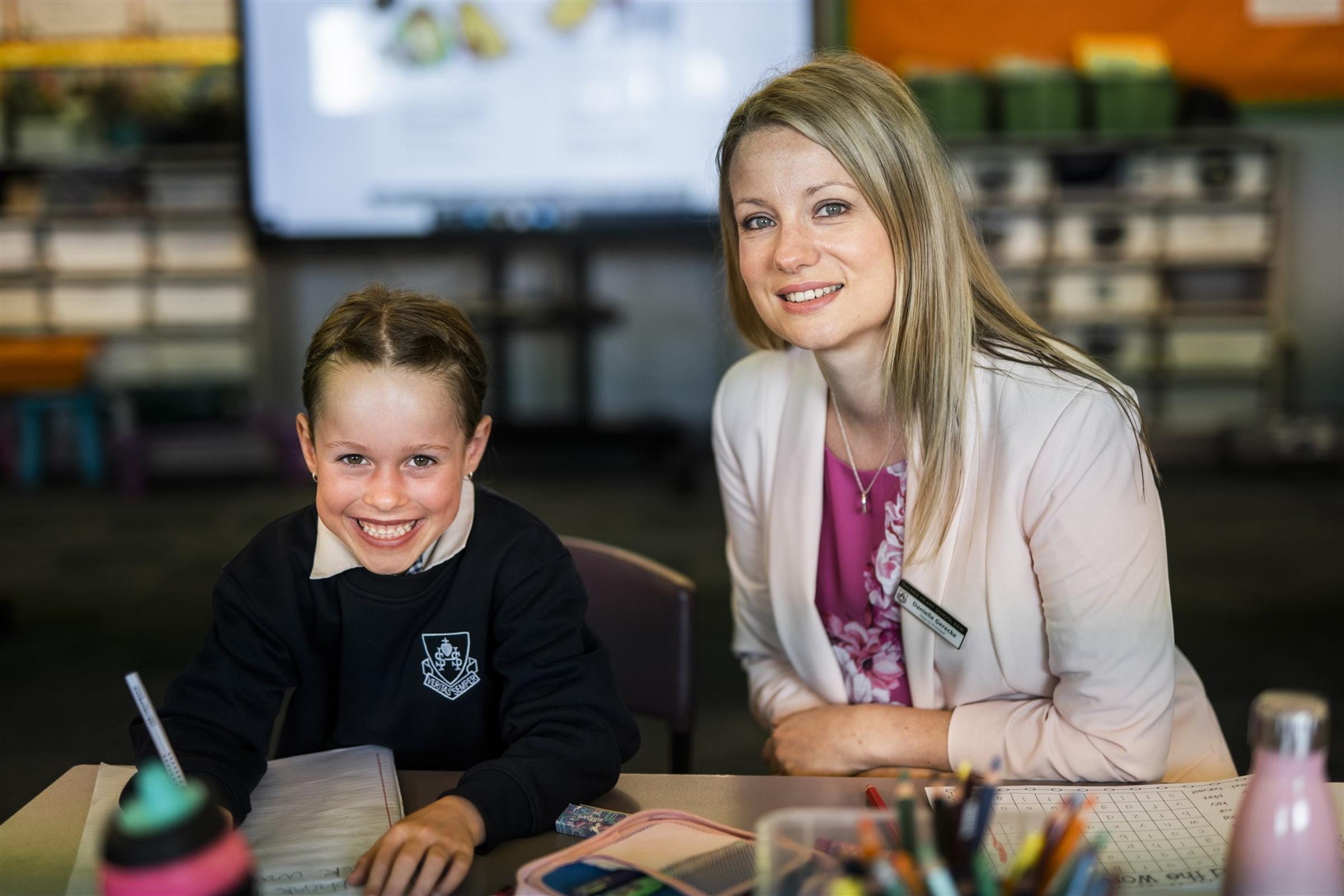Deputy Principal

School Counsellor
We continue our relationship with CatholicCare this year. Below is a message from our new school counsellor, Elise Saunders-Dow.
Hi! My name is Elise and I am the new School Counsellor at Sacred Heart Kew. I will be at school on Tuesdays in 2024. I am currently studying a Master of Clinical Psychology at RMIT and I’m really looking forward to working with students, alongside parents and teachers this year. In my spare time I love reading, pilates, nature walks, and trying new foods. Please feel free to reach out if you are looking for support.
Contact the school office at admin@shkew.catholic.edu.au
Thanks,
Elise
Strategies to help children cope with going back to school
Why does one child experience excitement at the thought of starting the school year while another experiences debilitating anxiety?
It’s rarely one thing and is often a combination of factors, including a child’s temperament and self-confidence; their previous experiences at school, kinder or childcare; friendships they’ve already formed; and the types of transition activities they’ve undertaken.
What does back-to-school anxiety look like?
Anxiety in children isn’t always easy to spot. The symptoms can range from very subtle changes to body language through to defiant behaviours such as anger and acting out.
However, avoidant behaviour is a hallmark feature for anxious children. Everyone can relate to gravitating to what makes us comfortable – being at home, engaging in things we like and are good at, and avoiding what makes us anxious or overwhelmed.
At its extreme, anxious-avoidant behaviour in relation to school can turn into school refusal, where a student regularly misses school with their parents’ knowledge due to school-related emotional distress.
Four ways parents can support their anxious child
How parents communicate about the new school year is important. Speaking positively about school and learning can reduce feelings of anxiety in children.
Parents can help children feel prepared and develop strategies to cope with feelings of anxiety by:
- Familiarising them with their new school or classroom. Take your child to visit their new school or classroom, read stories about school and “play” school so they can practise things they’ll need to learn, such as packing their bag.
- Helping them set goals. Encourage them to identify the things they can already do to get settled in their classroom, then set small goals for what they can do next. For example, “I can say goodbye without getting upset when my mum leaves. This term, instead of mum walking me into the classroom, I will wave through the window.”
- Developing some “calming” supports. Ask what has helped them before when they had worries. They could practise relaxation breathing, have quiet bedtime activities, practise “brave statements” such as, “I might feel a little worried, but I know the teacher will be there if I need help,” or bring a special item from home.
- Ensuring they can unwind after school. Some of the emotions your child has held inside all day may spill over when they return home. Consider calming activities, spaces or supports your child may need to process their emotions and sensory overwhelm.

